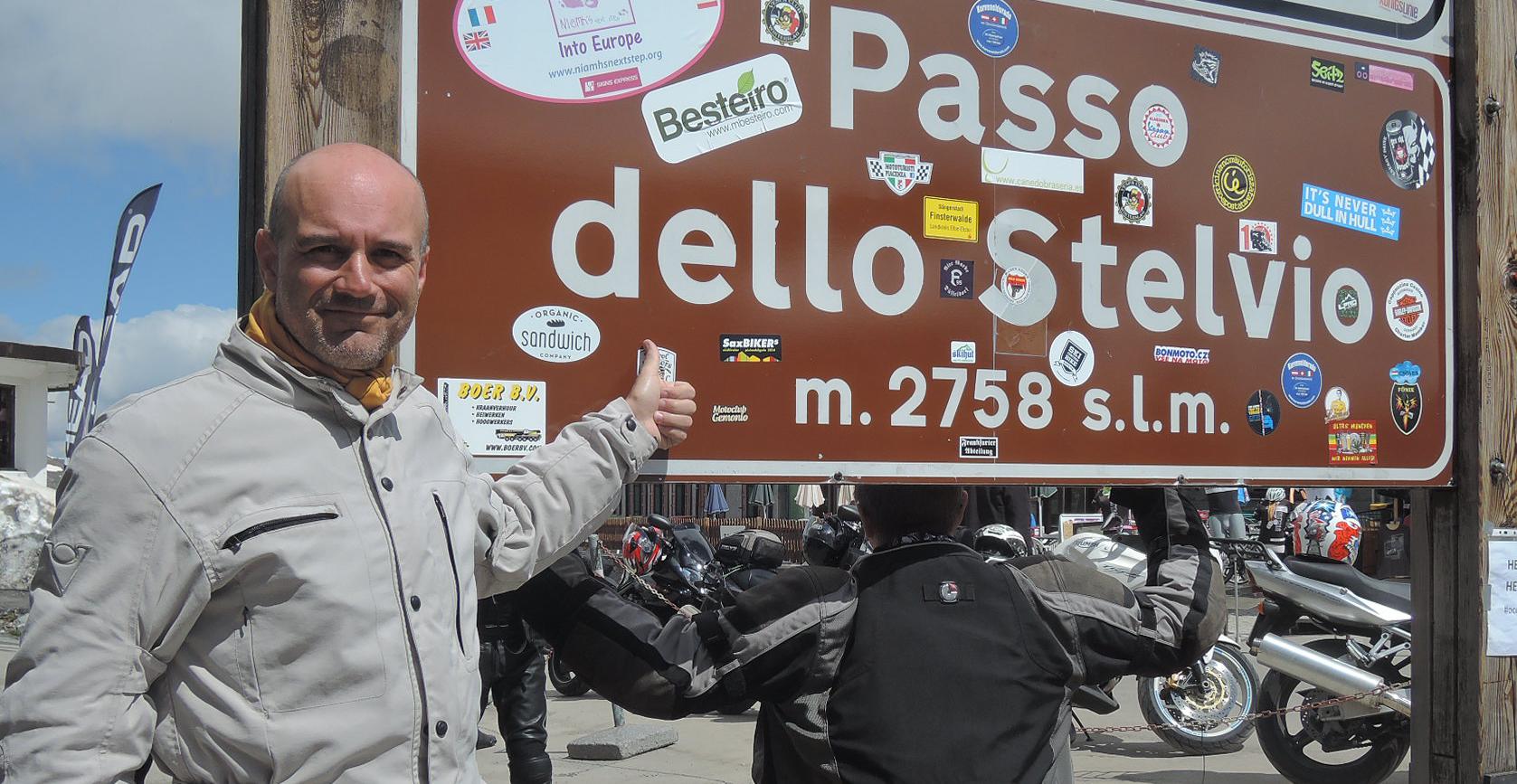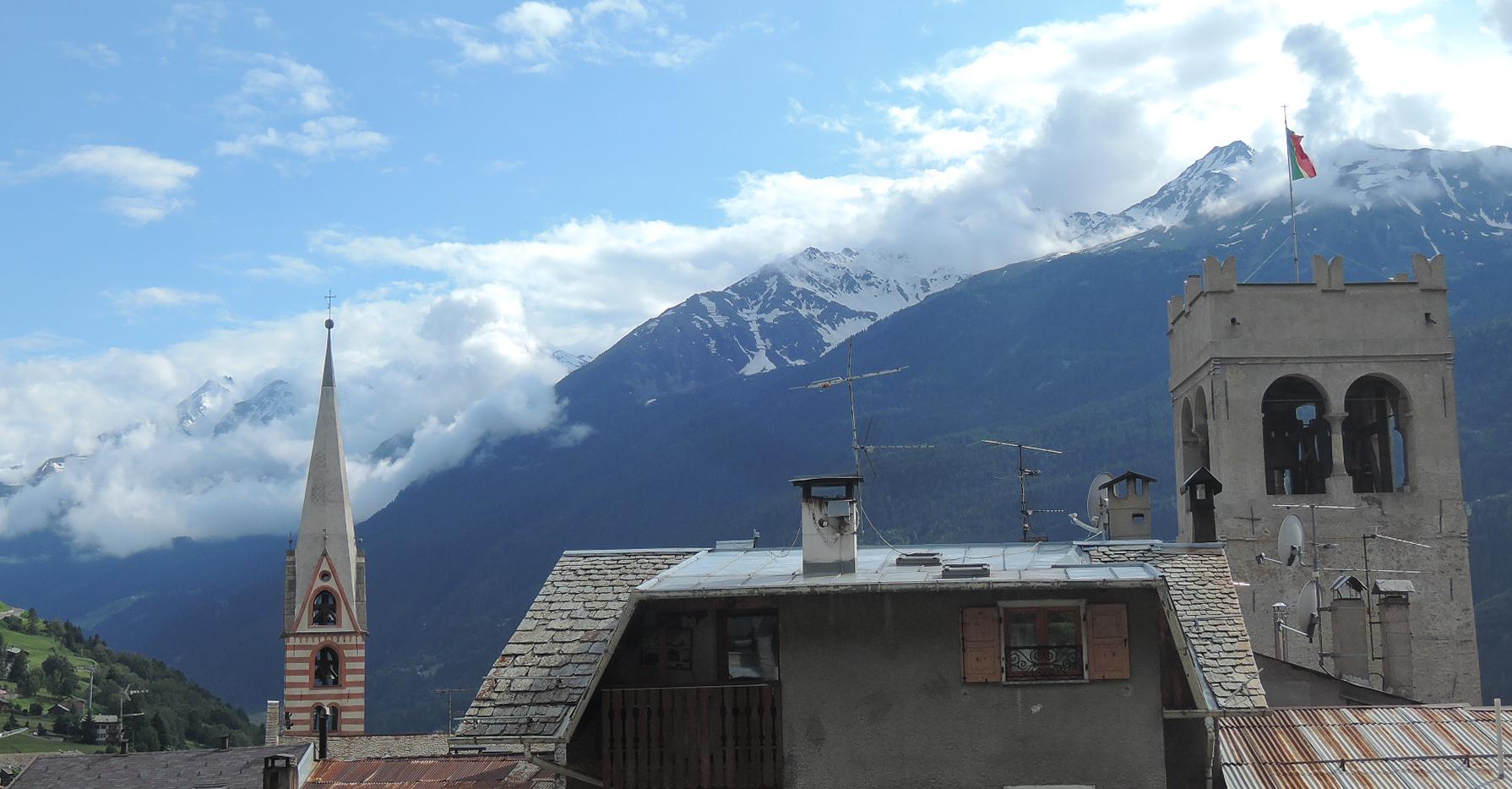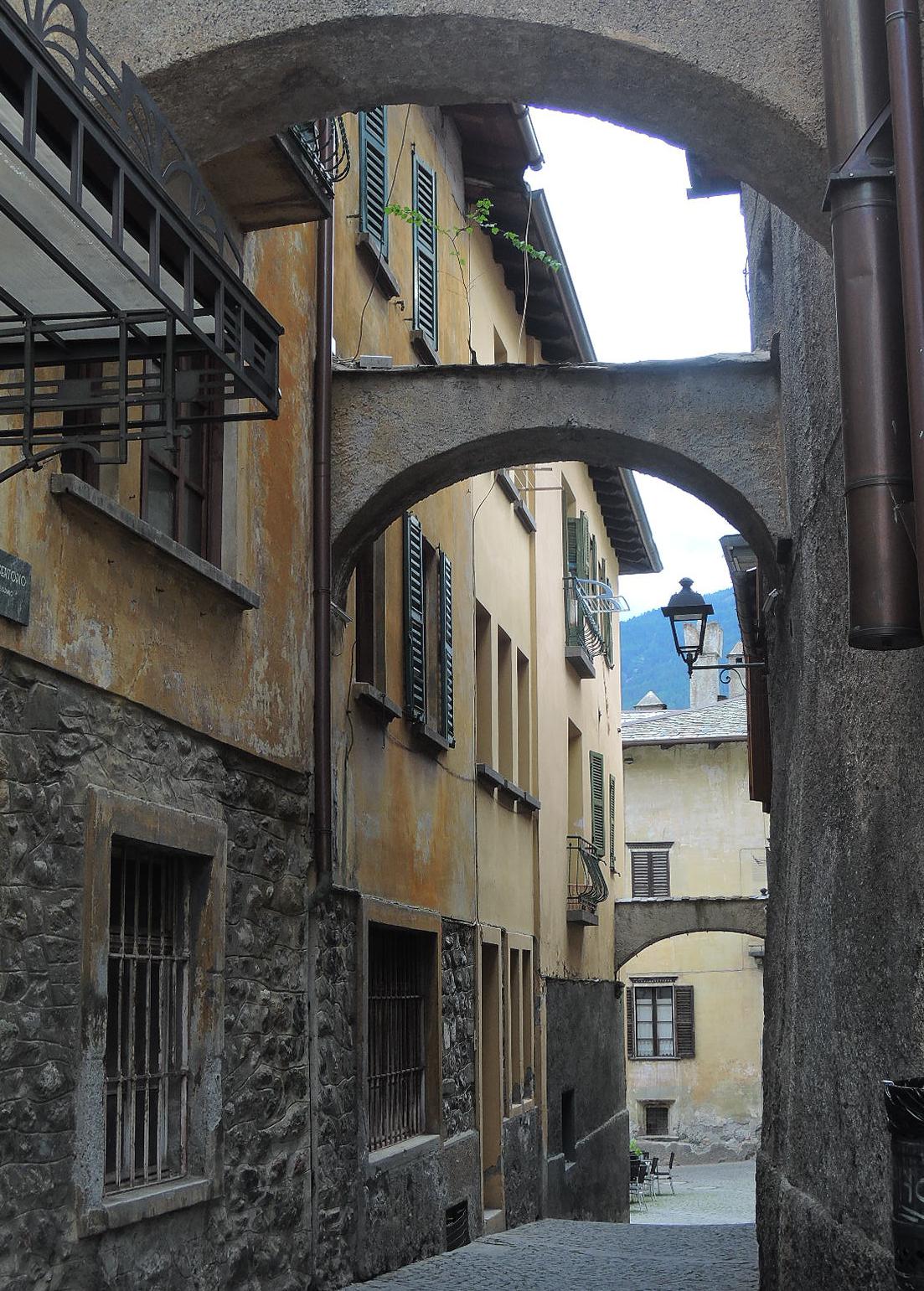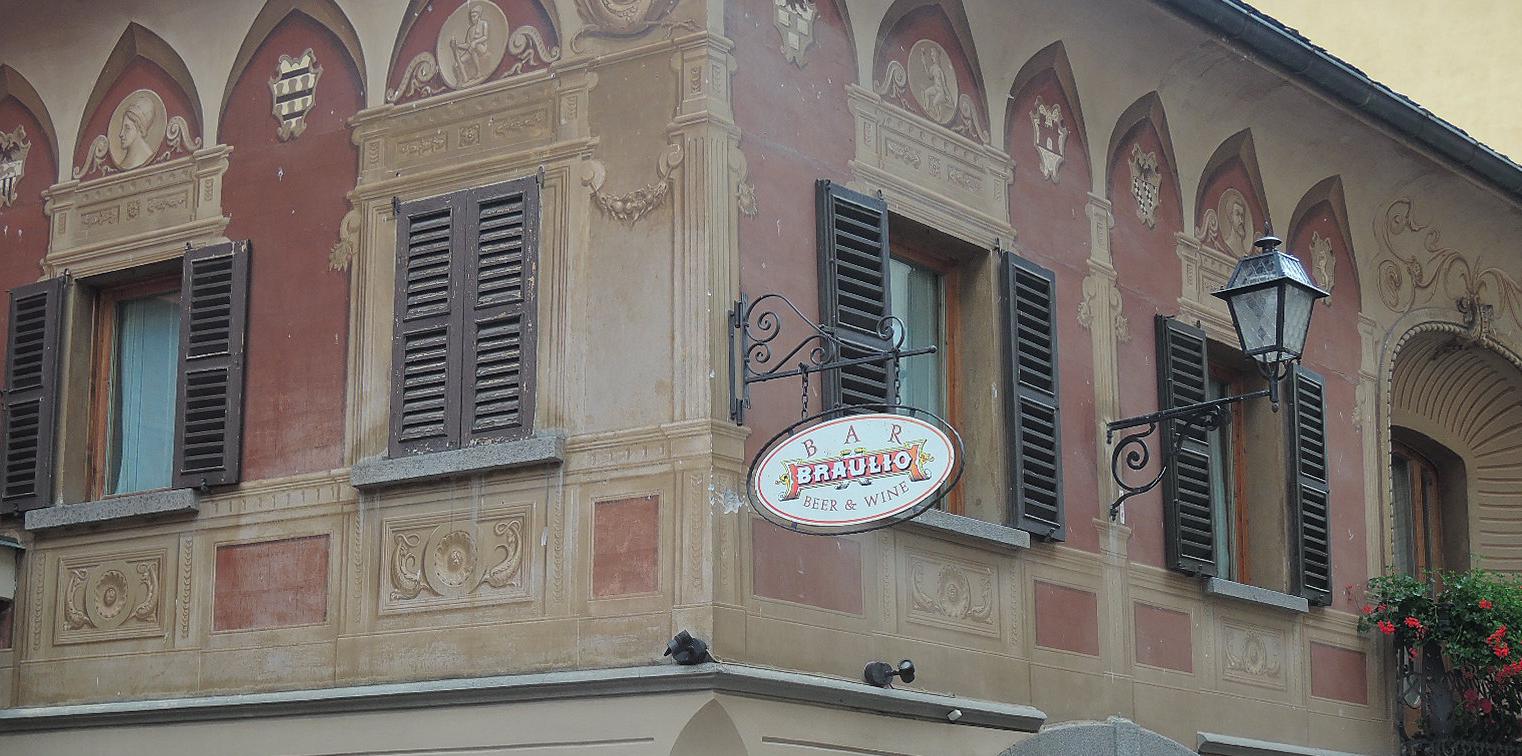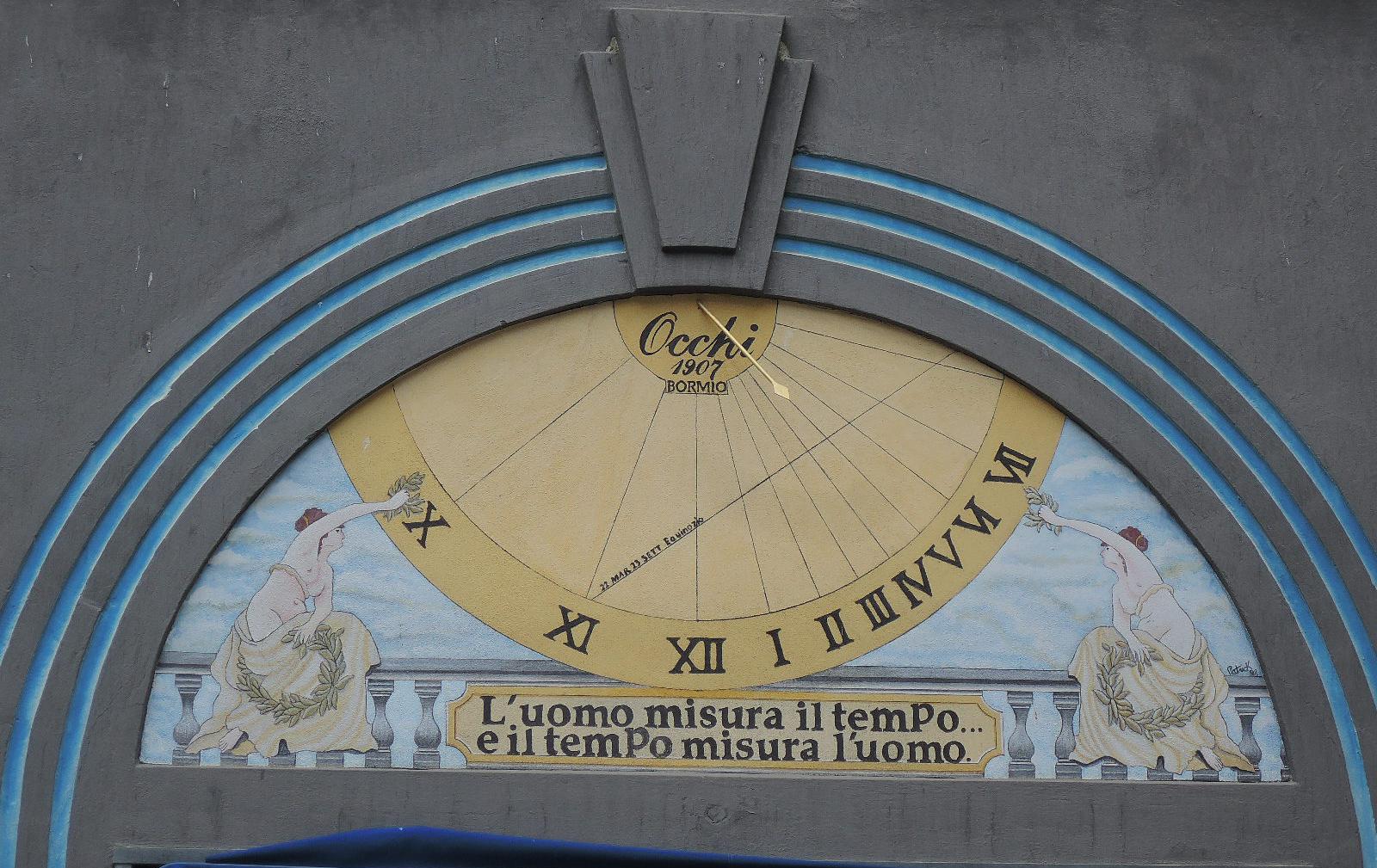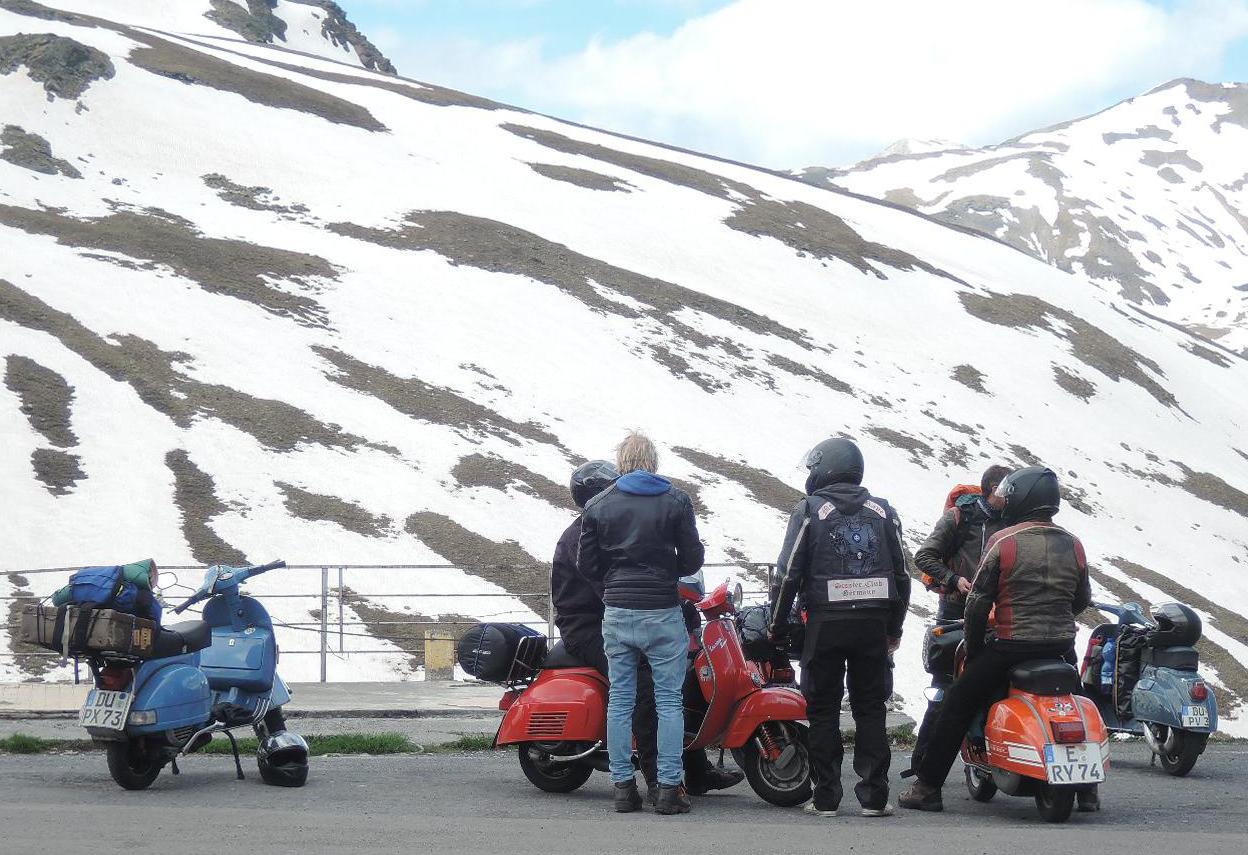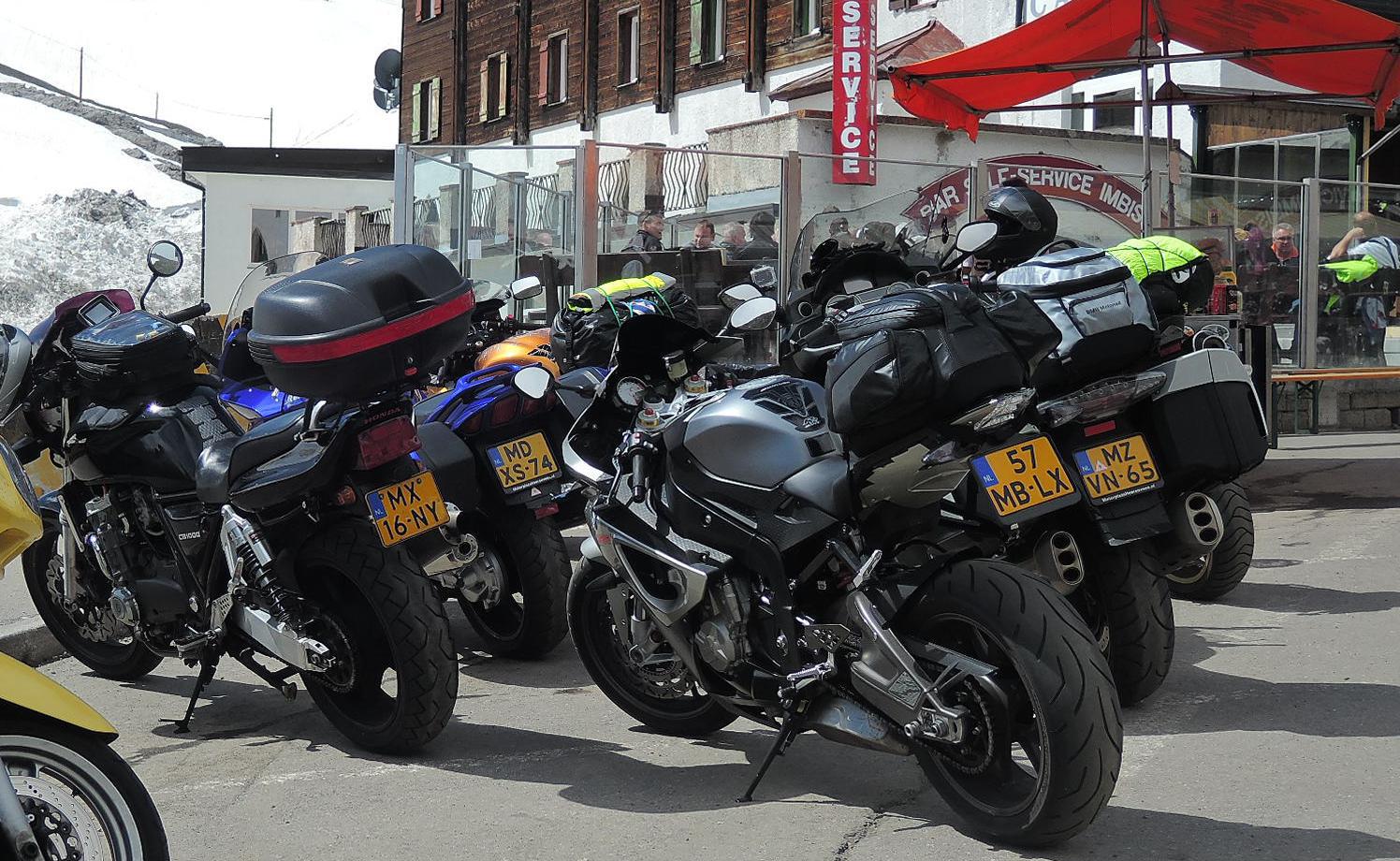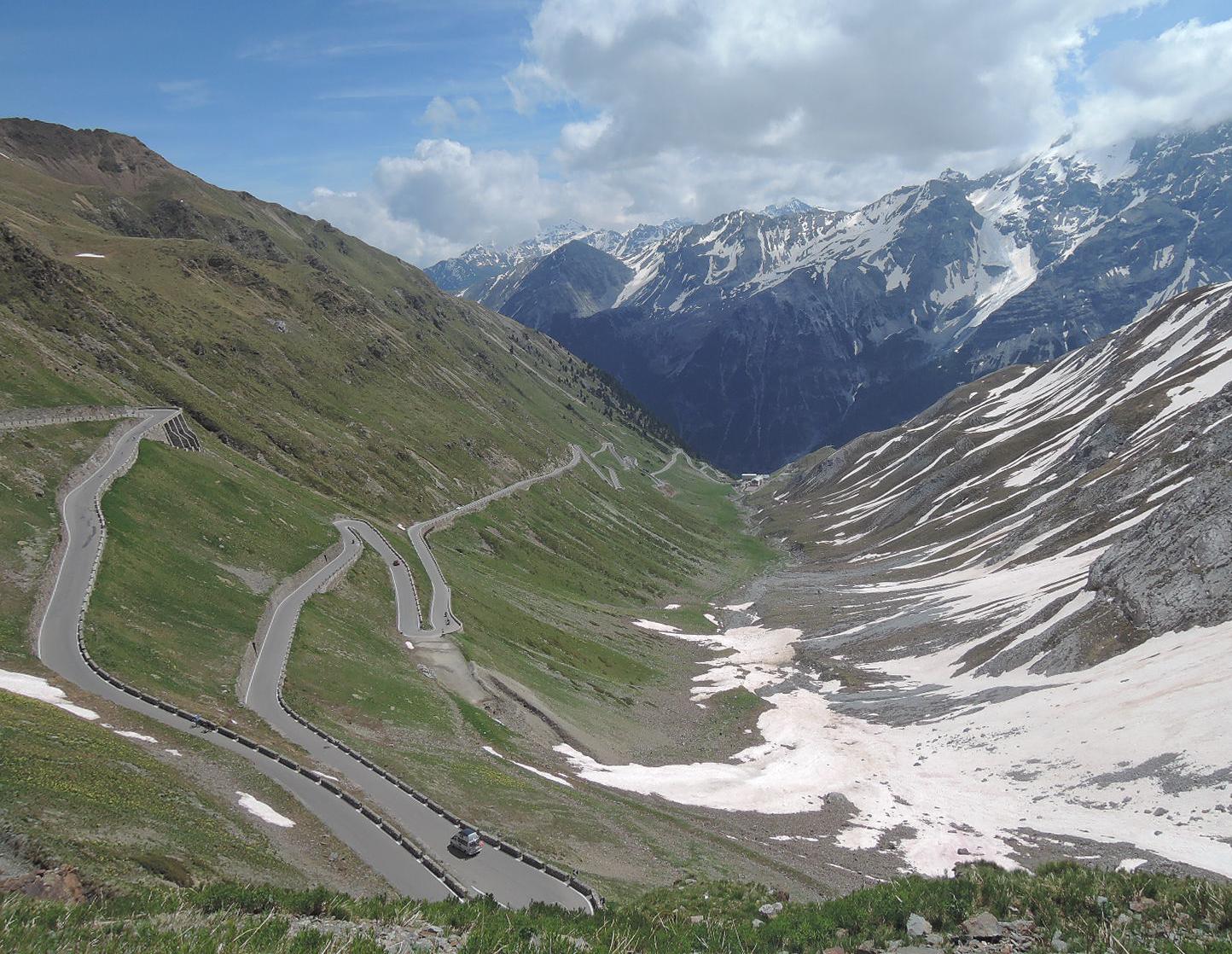Just by chance, not knowing anything about the region nor having ever heard about Stelvio, this has turned out to be a true “biker” stage in my trip, along a route -from Cernobbio to Bormio- frequented by thousands of motorcyclers every day; at least during the summer season.
These Alpine roads are of course quite inviting for riding a bike, for having fun and getting the best of our machines. That’s why the two-wheeled traffic is non-stop around here, shattering, almost excessive. Bikers of all kinds (sport, touring, off-road, custom, naked, scooters and even “mopeders”) converge in the Alps, from all four directions in Europe, for a meeting in -among others- the much frequented Stelvio Pass.
But not only them come here; also fancy drivers at the wheel of old collector’s cars, exclusively designed sports cars and even formula two’s. Quite a bunch of rubber and engine weirdos meet in these Alpine heights, over 9000 feet, for doing the eighty six sharp corners along the road of this -now I know- famous pass and thus deserve the Stelvio sticker; also, naturally, for spending the day, taking the typical picture by the road sign, having lunch in some of the bistros or eating a hot dog over at the popular stand by the road’s shoulder.
As to me, as I said, I arrive here without knowing a word about bkers’ routes nor popular places, deciding almost upon every crossing which direction to take next. Actually, what rather brought me here was the search of a way for getting to the South of Germany without crossing Switzerland, as I don’t feel like exchanging currency nor paying tolls. The thing is, in this senseless roaming of mine, in this pilgrimage to Nowhere, yet there is some course, however uncertain, and a few -very few- ports I want to reach. One of them is Bamberg, in Babaria, where a friend awaits me with open arms.
From Cernobbio I skirt lake Como along its west shore and, then turning east, I pass by Sondrio and Tirano to Bormio, where I arrive in the afternoon. And, as I like the town, I decide to stay overnight. I find -not without surprise- that some of the albergos and guest houses are closed by mid-day. Do Italians take siesta time as seriously as Spaniards do? In the more expensive hotels there is, sure, someone at the reception 24/7, but I’d rather stick to my moderate budget; so, after going around for a while, I find a hostage to my full satisfaction (Meublè Dante): the landlady is kind, the price affordable and the room, comfy and cute, has a splendid view over a square and to the mountains.
Actually I find it so nice that, right away, I decide to stay two nights instead of just one, and seize the opportunity for thoroughly exploring the town and maybe doing some short bike route around.
And that’s how, asking to the locals, I learn about the existence of the Stelvio pass and other nearby ones where to cross the highest peaks to the north side of the Alps. But for today, 100 miles of asfalt has been enough. The rest of the day is for myself, for moving my legs and exploring the steep streets of Bormio, photographing the fine and old frescos on the houses’ facades -so typically Italian-, passing under the many arches of its passagewayss, getting astonished by the imposing proximity of the now capped peaks, and grabbing a beer somewhere.
But! These people close everything down by 9:30 pm the latest, despite the tourism. More yet: there not being convenience stores, starting from 5-6 pm, time when shops close, there’s no way of buying anything; therefore, if you’re a bit forgetful, you may well end up your day without a dinner – which has been the case.
My hotel’s landlady tells me that, for crossing the mountains over towards Austria, Stelvio pass (in Italy) is more beautiful than the neighbouring Santa Maria pass (in Switzerland); but, putting this opinion to her -presumed- Italian patriotism, I’d rather check it by myself. So, next morning I take Rosaura -without cases!- and take a tour that I happen to enjoy like if I was a happy person. From Bormio I ride to Prato Alto Stelvio, then to Sluderno and, thence, I come back through Switzerland, taking to the left, in Santa Maria Val Mustair junction, a narrow, deserted and neglected road, finally leading cloase to Bormio.
Now, I have to admit that, patriotic or not, the lady was right. Not only Stelvio is sensibly nicer, but also the Italian roads are in a better shape than the Swiss. It seems that the wealth brought to Switzerland by European politicians, tax evaders and other fraudsters is not used by the Swiss government for improving their roads.
The atmosphere at Passo dello Stelvio has already been described. A real motorcycle exhibition and a gathering of weirdos of all kinds. Perhaps the funniest I saw was a group of Germans riding on old Vespas, luggage and all.
For crossing over Stelvio from South to North sides (or vice-versa, obviously) a driver needs to take no less and no more than eighty six hairpin bends. I counted them carefully one by one. As I’ve been told, some biker groups time their times, though with all that much traffic on this road I can hardly understand how the results can be meaningful.
And it’s cold up here! Despite being full July and having a bright sun, the chill air bites, and you can’t go around just on a T-shirt. A good coat is necessary.
The other pass, via Switzerland, is fair less popular and sensibly duller. It has called my attention, by the way, the fact that, despite this country not beloonging to the EU, the borders are not surveyed around here. The one to the north, by Tubre, has a deserted control booth; but the one to the south (close to Bormio) has just nothing in the way of a police check; just a neglected and rusty crossing gate, barely for the records.
And thus far Italy, for the moment being. A unique and surprising experience. A blend of modern and old, of anchored-in-the-past places with cutting-edge ones, of anachronism and futurism, of traditional values with contemporary ones. An artistically, culturally and socially rich country.

